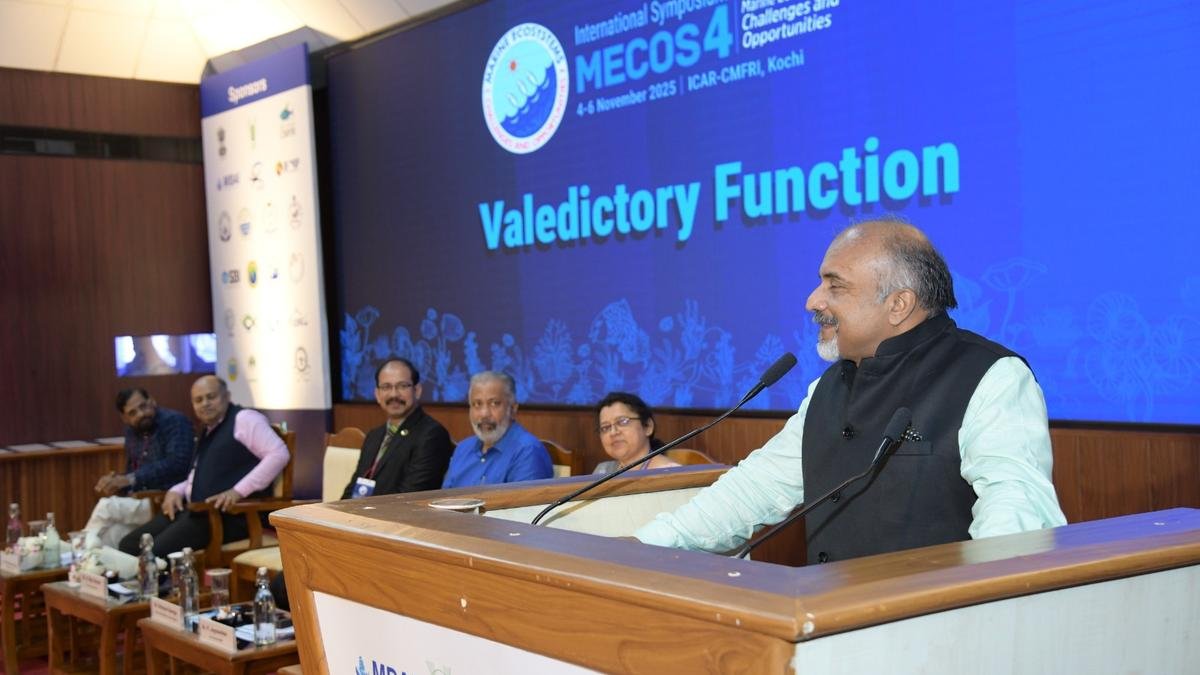MECoS 4 urges ecosystem-based marine management and women-led blue economy growth


KUFOS Vice Chancellor A Bijukumar speaking at the valedictory of the fourth international marine symposium at CMFRI.
The 4th edition of the International Symposium on Marine Ecosystems (MECoS 4) has emphasised the need for adopting ecosystem-based, multi-species management approaches to ensure the sustainable use of marine resources and to strengthen India’s blue economy framework.
In a set of recommendations, MECoS 4 placed women’s empowerment and startup support at the core of the proposed roadmap for sustainable ocean development.
The symposium, organised by the Marine Biological Association of India (MBAI) in association with CMFRI, urged that targeted capacity building, innovation support, and leadership opportunities be extended to women and young professionals in the marine and coastal sectors.
Climate resilience roadmap
Other scientific recommendations included mainstreaming climate change resilience, strengthening public–private partnerships in mariculture, developing robust cold chain and traceability systems, and incorporating environmental and socio-economic indicators into national fisheries management frameworks. It also called for regional collaboration and institutional partnerships to establish centres of excellence for research, innovation, and policy support.
A Bijukumar, Vice Chancellor of Kerala University of Fisheries and Ocean Studies, said that collaboration is the key to unlocking the full potential of marine ecosystems and protecting the livelihoods of coastal communities.
CMFRI Director Grinson George said the outcomes of MECoS 4 would guide India’s strategy for sustainable fisheries and ocean governance, align with the UN Sustainable Development Goals, and advance the nation’s blue economy vision.
Global ocean impacts
Earlier, marine scientists highlighted that the polar regions are warming nearly 4 times faster than the global average, triggering manifold impacts on marine ecosystems.
Thamban Meloth, Director of the National Centre for Polar and Ocean Research (NCPOR), pointed out that melting sea ice is not merely a polar concern but a global one. “The loss of polar sea ice contributes to sea-level rise that directly affects tropical coastlines and intensifies cyclone genesis in the Arabian Sea,” he cautioned. The melting of ice alters salinity, acidification, and nutrient balance, impacting phytoplankton productivity, fisheries, and even wildfire occurrences in the polar and sub-polar ecosystems, he added.
Published on November 6, 2025



